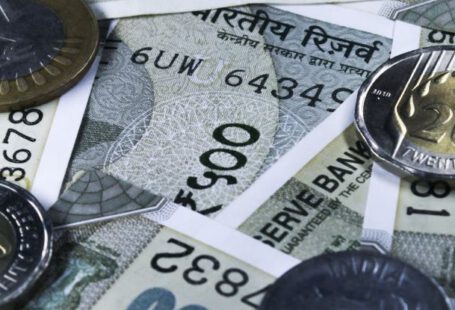Inflation is a term that we often hear in the economic sphere, but what exactly causes it? In simple terms, inflation is the increase in the prices of goods and services over time. It erodes the purchasing power of money and can have a significant impact on the economy. In this article, we will explore the various factors that contribute to inflation.
1. Demand-Pull Inflation
One of the primary causes of inflation is demand-pull inflation. This occurs when there is excess demand for goods and services in the economy. When demand exceeds supply, prices tend to rise. This can happen due to various reasons, such as increased consumer spending, government spending, or an increase in exports. When people have more money to spend, they are willing to pay higher prices, leading to an increase in inflation.
2. Cost-Push Inflation
Another significant cause of inflation is cost-push inflation. This occurs when the cost of production increases, leading to higher prices for goods and services. There are several factors that can contribute to cost-push inflation. For example, a rise in wages can increase the cost of labor, which in turn leads to higher prices for the final products. Additionally, an increase in the cost of raw materials or energy can also result in cost-push inflation.
3. Monetary Inflation
Monetary inflation is another factor that can cause inflation. This occurs when there is an increase in the money supply in the economy. When there is more money in circulation, people have more purchasing power, which can drive up prices. Governments and central banks play a crucial role in controlling monetary inflation. By adjusting interest rates and implementing monetary policies, they can manage the money supply to keep inflation under control.
4. Expectations
Inflation expectations can also contribute to the actual inflation rate. If people expect prices to rise in the future, they may increase their spending, leading to an increase in demand and inflation. Additionally, if businesses anticipate higher costs in the future, they may increase their prices to offset those costs, further fueling inflation. Expectations play a crucial role in shaping economic behavior and can have a significant impact on inflation.
5. External Factors
External factors, such as changes in exchange rates or international commodity prices, can also influence inflation. For example, if a country’s currency depreciates, it can lead to higher prices for imported goods. Similarly, if the price of oil or other essential commodities increases globally, it can result in higher prices domestically. These external factors can have a significant impact on inflation and are often beyond the control of individual countries.
6. Government Policies
Government policies, particularly fiscal and monetary policies, can also affect inflation. For example, expansionary fiscal policies, such as increased government spending or tax cuts, can stimulate demand and potentially lead to inflation. Similarly, loose monetary policies, such as lowering interest rates or increasing the money supply, can also fuel inflation. Governments need to strike a balance between stimulating economic growth and controlling inflation through appropriate policy measures.
In conclusion, inflation is a complex phenomenon influenced by various factors. Demand-pull inflation, cost-push inflation, monetary inflation, expectations, external factors, and government policies all contribute to the overall inflation rate. Understanding these causes is essential for policymakers and individuals alike to make informed decisions and navigate the economic landscape effectively. By monitoring and managing these factors, it is possible to maintain stable prices and ensure a healthy economy.





